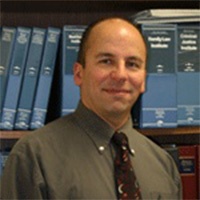Nimrod DUI-DWI Lawyer, Minnesota
Not enough matches for Nimrod DUI-DWI lawyer.
Below are all Nimrod Criminal lawyers.
Edward R Shaw
✓ VERIFIEDDivorce & Family Law, Criminal, Real Estate, Estate, Bankruptcy & Debt
The Law Office of Attorney Edward R. Shaw is located in Brainerd, Minnesota and has been serving the Brainerd Lakes Area and surrounding counties with... (more)
Allen J. Peterson
✓ VERIFIEDCriminal, Divorce & Family Law, Traffic, Estate Planning, Wills
Minnesota Native Allen J. Peterson is a 2017 graduate of the University of St. Thomas – School of Law. Allen was born September 24, 1991 in Dakota C... (more)
FREE CONSULTATION
CONTACTDaniel Mayer Hawley
Divorce & Family Law, DUI-DWI, Elder Law, Contract, Collection
Status: In Good Standing
Reid Wheeler Brandborg
Intellectual Property, Divorce & Family Law, DUI-DWI, Criminal
Status: In Good Standing
Reid Wheeler Brandborg
Intellectual Property, Divorce & Family Law, DUI-DWI, Criminal
Status: In Good Standing Licensed: 20 Years
Matthew Lee Enger
Wills & Probate, Child Custody, DUI-DWI, Corporate
Status: In Good Standing Licensed: 10 Years
Kristine Ann Peterson-Lahr
Criminal, DUI-DWI, Adoption, Child Support
Status: In Good Standing Licensed: 23 Years



